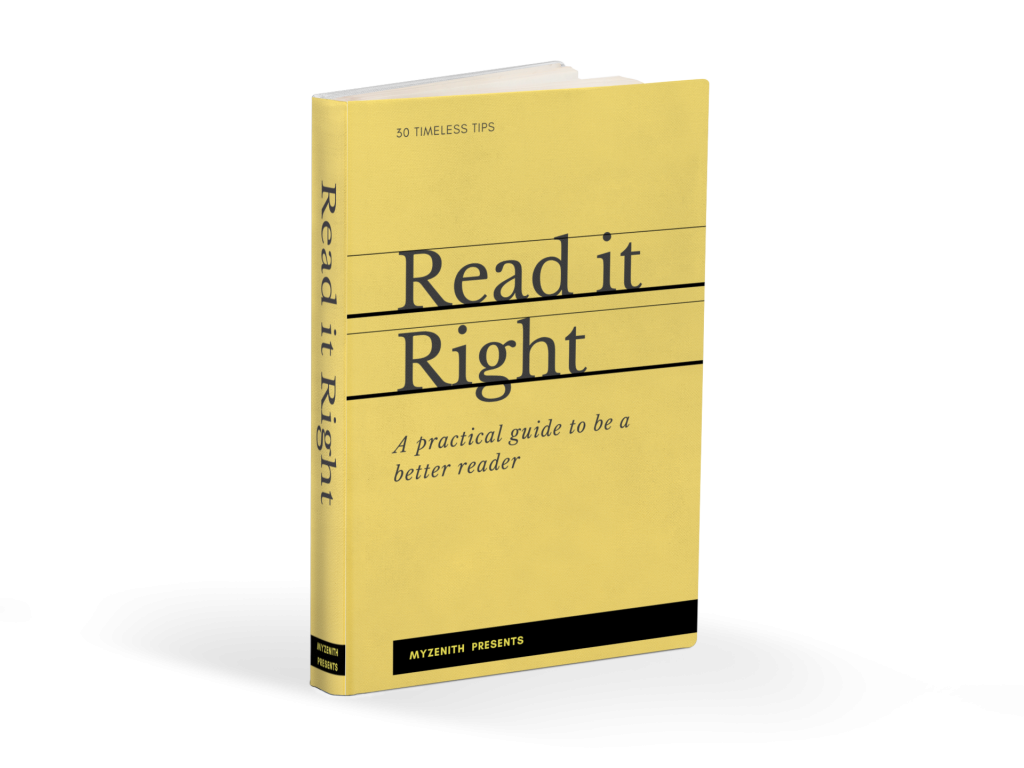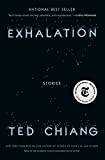Our comforting conviction that the world makes sense rests on a secure foundation: our almost unlimited ability to ignore our ignorance.
Daniel Kahneman
A good read is a good reason to read
A good read is one that changes you, has an impact on you, ideally in a way that you want to be changed. But is that always the case? Depends on what you read, and how you read it. Gone are the days when there were trusted gatekeepers to the written word – when editors and publishers (supposedly) safeguarded the interests of the reading public. With the ease of publishing these days, writers are dime a dozen, fake news artists even more. We are left to our own good senses to make sure what we read is indeed a good read. We like to call these good senses a matter of perspective.
Perspective (noun) \ pər-ˈspek-tiv \ : a particular way of thinking about something, especially one that is influenced by your beliefs or experiences
Let’s talk about reading and perspective. Three things about perspective, really, since all good things come in threes.
First is about forming an Independent Perspective. We consume information throughout the day, whether it is from a book, a long-form article or short snappy news. We believe that learning more about the world keeps us better informed. Optimistic, but sadly untrue. To see the world as it is, and not as others want us to see it, requires a rather uncommon skill of putting things in perspective.
One of my favorite books about perspective is Factfulness by Hans Rosling. Rosling was a medical doctor, a global health professional and the founder of Gapminder Foundation, an organization whose mission is to fight devastating ignorance. If you don’t believe the widespread lack of awareness, try out the Factfulness Quiz here.
While the quiz may seem like it is about general knowledge, the book addresses much more than that – it explains ten “instincts” that make it difficult for humans to have a fact-based view of the world, and goes on to explain practical ways to avoid the pitfalls.
It is an excellent read for our times, to help us sift out the fact from fake, the detail from the drama, the right from the rhetoric. Now more than ever, we need to train our own ability to put things in perspective. And this book is an excellent guide to replacing our faulty instincts with critical thinking so that we may develop an independent perspective and see the world for what it is.
The second concept is Plasticity of Perspective. Try to think back to the last time you learned something radically new? The last time you were willing to let go a firmly-held belief and replace it with something that you had not previously considered or had judged inconceivable? Children find it easy to learn and change their mind, most adults don’t. As we age, our brains tend to get more fixed in our neural pathways. However, recent studies have shown that it can indeed be altered, but with deliberate efforts.
It is not the most intellectual or the strongest species that survives, but the species that survives is the one that is able to adapt to or adjust best to the changing environment in which it finds itself.
Charles Darwin
Without getting into a discussion on neuroplasticity here, let’s talk about retaining our ability to change our opinions, to learn something new, to be surprised. I like to think of this as collecting “aha-moments.” That moment when you learn a new concept, when you understand something for the first time, when you see something in a new light – that’s pretty close to bliss. But those are hard to come by as we age, unless…we go looking for it.
Let me share with you the source of my most recent aha-moments – Ted Chiang’s short story collection “Exhalation”. Exhalation is a wonderful collection of stories that make you think, it opens and bends your mind. My favourite is the story titled “The Truth of Fact, the Truth of Feeling”, about a near-future in which fallible human memory is superseded by searchable digital video.
Chiang in his masterful prose takes us not only forward, but also backward to reflect on how the written word is really an augmentation of human memory. While most of us hold the “truth” in high esteem, the story also forces you to think of the concept of the absolute truth as a cultural construct, and as the title suggests, there is the possibility of the truth of the fact and the truth of the feeling, and one need not be better than the other even when the two don’t agree.
Last concept to consider – Heterogeneity of Perspectives. Quite simply, this is about not living in our own bubble. We all live in bubbles of some sort, and the ones who deny this most vehemently usually inhabit the most impenetrable ones. Algorithms that govern what we read – from the Facebook newsfeed to the book recommendations of Amazon – dictate what you see or read next based on what you read and liked before. They play on our instinctive need to be in our comfort zones, to not have our views challenged. Yet in the future that we cannot yet see, the ability to know and hold differing perspectives will be critical not just for success, but for survival. How do we pull ourselves out of the self-reinforcing mechanisms (internal and external) that drags us deeper and deeper into what one already knows and away from experiencing differing viewpoints?
The test of a first-rate intelligence is the ability to hold two opposed ideas in the mind at the same time, and still retain the ability to function.
F. Scott Fitzgerald
A simple way to overcome this – stick your head out of the bubble once in a while. Actively seek out books (other sources work as well, but this newsletter is about reading after all) that challenge your perspective. How about picking up a book or an author you know you will hate? How about getting inspired by the reading choices of someone who represents the polar opposite of your views in the political spectrum? How about trying a genre you would never have considered?
Ray Dalio’s Principles addresses this topic in what he calls radical open-mindedness – the ability to explore different points of view without our ego or blind spots getting in the way. Principles is a clear and candid account of how Dalio started and grew Bridgewater Associates to be the largest and most successful hedge fund in the world.
It is rare to get a view of the mistakes and learning of someone of that stature and achievements, even rarer to then have them abstract those and distill down into principles that you and I could apply.
To summarize:
- Seek out multiple viewpoints, even (and especially) those different from your own (Heterogeneity of Perspective)
- Develop the ability to rationally make up your own mind after considering different viewpoints (Independence of Perspective), and
- When appropriate, be willing and able to change your mind (Plasticity of Perspective).
If you can master these three – which are really skill sets that can be honed by deliberate practice – you are well on your way to making sure that everything you read is indeed a good read.

If you would like to get more tips to be a better reader, download our practical guide – Read It Right. Free for all subscribers!



